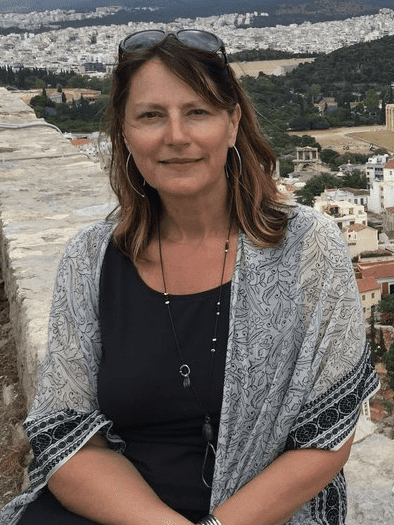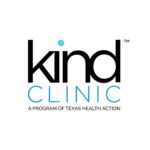 In collaboration with Kind Clinic, Karen Finley Breeding, MA, LPC-S facilitates the longest-running HIV support group in Austin. The group is diverse in gender, sexual orientation, ethnicity, and date of diagnosis. The diversity of the group creates a uniquely rich group of people who are all living with HIV, and come together once a week to support one another to not only survive, but thrive.
In collaboration with Kind Clinic, Karen Finley Breeding, MA, LPC-S facilitates the longest-running HIV support group in Austin. The group is diverse in gender, sexual orientation, ethnicity, and date of diagnosis. The diversity of the group creates a uniquely rich group of people who are all living with HIV, and come together once a week to support one another to not only survive, but thrive.
We had the pleasure of interviewing Karen Finley Breeding to learn more about her time facilitating Kind Collective and why support groups for those living with HIV are essential to our community.
KC: Tell us about Kind Collective and how this support group got started.
Karen: I believe I took over the group around 2001. The group had been in existence for several years under the auspices of the Wright House Wellness Center (WHWC), prior to my coming on board, when the executive director contacted me to see if I had any interest in contracting with them to take over facilitation of the group.
When I took over, the group’s current facilitator had suddenly resigned, and the group was in a state of upset. The group was without facilitation for about three months before they contacted me. During the hiatus, the group continued to meet weekly at bars and restaurants. The clinical director contacted some of the group members to let them know that they had another facilitator in mind. The group responded that they wanted to meet and interview me before they would agree to bring the group back to WHWC. They basically wanted to ensure that I would commit to facilitating for a while and let them have some semblance of control/ownership regarding the group. When I told them that I thought the group would be best if we capped the number of participants to 12, they became pretty upset. There were already about 20 people in the group, and they didn’t want to turn any potential new members away. I’d never run a group that large, and my training was regarding smaller groups. We actually argued about that for a while until I acquiesced.
After the meeting, I wasn’t sure If I wanted to facilitate the group. It seemed like a difficult crowd. I decided to give it a go, and the first night about 6 people attended. My goal was to create safety, to process their upset and sadness regarding the change in facilitation, and to let them get to know me a bit. The small size of the group let me know that they weren’t totally sure about me yet. They had all known one another for a long time and I was an outsider. I realized I was still being interviewed. We had a successful group that night, and the next week, the group doubled.
Since then, the group has moved to various locations around Austin, and I’ve contracted with the Wright House, Waterloo, and most recently the Kind Clinic. At our largest, we had over 20 members, and participants were sitting in seats, as well as the floor. Currently, the group is at its smallest, with about 5 regular members.
KC: What does a typical Kind Collective meeting look like?
Karen: We get together every Tuesday, 6:30 – 8pm. Each group is started and ended with a short meditation that helps us settle and get centered. During group people share about things related to being HIV positive such as medication, health, dating and disclosure, but also things that are more general, such as work and family. The group supports one another to live a healthy life.
KC: Why do you think it’s important to provide a consistent safe space, such as Kind Collective, to those living with HIV?
Karen: Working in HIV since 1995, I’ve certainly seen positive changes in the field. Improved medications have increased long term health and though education has reduced stigma to some extent, we still have a long way to go in that area. Most people don’t talk openly about their HIV status, so having a group where you can be open about this part of your life, without fear of judgement, is extremely important.
KC: How has Kind Collective helped those living with HIV build confidence and strength to persevere?
Karen: Though the group changes as members come and go, one thing has remained steadfast. This group has always supported one another to live their best life in all areas. Even though the group has historically been diverse, the members have always shown an interest and care for one another.
KC: In your opinion, how is taking part in this group most beneficial to those living with HIV?
Karen: Having a place where you don’t have to be careful to hide your HIV status is very freeing. I do think that different members come to the group for different reasons. Some come for emotional support, some come to meet other people who are living with HIV, some come to talk about medications, health insurance and medical care, and some come simply for camaraderie. We’ve been gathering every week for the better part of 20 years, so we must be doing something right.
Kind Collective meets every Tuesday from 6:30pm – 8:00pm. Contact your Patient Advocate or give us a call at 512-853-9547 for more details.


